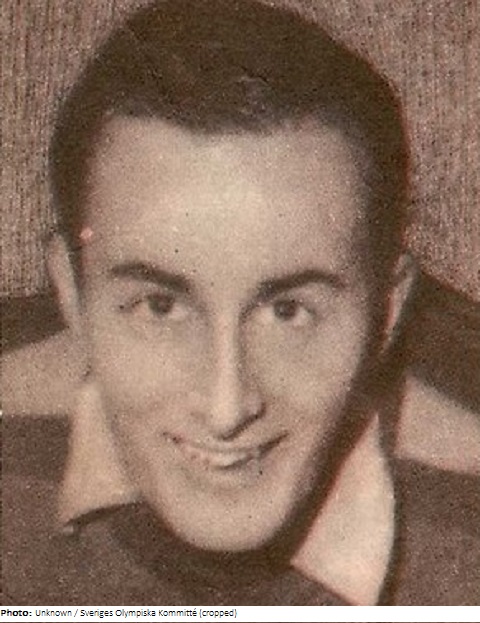Following his father Gustaf “Lulle” Johansson’s footsteps, Gösta Johansson, nicknamed after his father as Lill-Lulle (Little Lulle), became one of the best Swedish ice hockey players in the early 1950s. Johansson started his career in 1945 with IK Göta and moved to Djurgårdens IF in 1947, playing there most of his career, before finishing his career with Västerås IK from 1960-62. With Djurgårdens, Johansson won Swedish titles in 1950, 1954, 1955, and 1958-60, and was also the best goal scorer at the Swedish Championships in 1949 and 1957. Like his father, Johansson had a parallel professional career in Germany from 1950-52 and won the German title in 1951 with Preussen Krefeld. He also played with Zürcher SC in Switzerland in 1952-53. Johansson earned 96 caps with the Swedish national team from 1947-55, scoring 79 goals. He won an Olympic bronze in 1952, was World Champion in 1953 and won World Championships silver in 1951 and bronze in 1954. He was also European Champion in 1951-53, while taking silvers in 1949 and 1954 and bronzes at the 1950 and 1955 European Championships. He was awarded the Stora Grabbars Märke (Big Boys’ Badge) #32 in ice hockey, a Swedish sports honorary award created in 1928 by Bo Ekelund. After finishing his sporting career, Johansson became a successful businessman and ice hockey coach, coaching several teams in Sweden, Switzerland and Italy. From 1976-79 he was head coach of HC Bolzano, coaching them to Italian Championships three times in a row from 1977-79. In 1955, he married Gundi Busch, who in 1954 had become the first German figure skater to become the ladies singles World Champion.

 Sweden
Sweden SWE
SWE